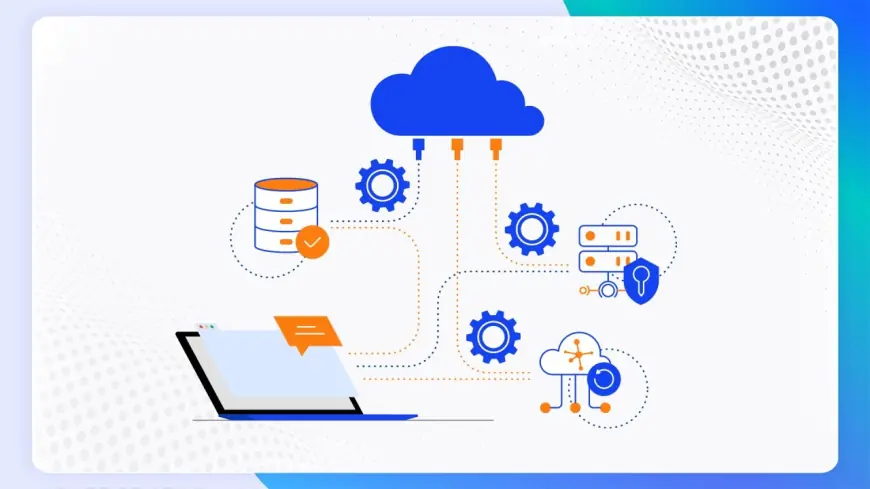Managed Cloud Security Services in Qatar: Safeguarding Digital Growth
Discover how managed cloud security services in Qatar help businesses stay protected, compliant, and resilient in an evolving digital landscape.

As businesses in Qatar rapidly move to cloud-based platforms, digital transformation is unlocking new levels of scalability and innovation. But with this advancement comes a pressing challenge—security. Cyber threats are growing in complexity and frequency, putting sensitive business data, customer trust, and operational continuity at risk.
This is where Managed Cloud Security Services in Qatar step in. These services provide continuous protection, monitoring, and compliance support so that companies can focus on growth while experts handle the threats.
In this blog, we’ll break down what managed cloud security means, why it’s essential for Qatari businesses, how it works, and what to look for in a trusted service provider.
What Are Managed Cloud Security Services?
Managed cloud security services are outsourced solutions that monitor, manage, and secure your cloud infrastructure. Instead of handling security internally, businesses hire a third-party provider (called a Managed Security Service Provider or MSSP) to oversee everything from threat detection and compliance to data protection and recovery.
These services can include:
-
Real-time threat monitoring and alerts
-
Firewall and intrusion prevention
-
Identity and access management
-
Data encryption and backups
-
Security compliance management
Why Are Managed Cloud Security Services Important in Qatar?
Qatar’s digital-first initiatives—like Smart Qatar and the country’s focus on cloud adoption—are pushing businesses toward technology-driven operations. However, this also increases the exposure to potential cyber risks.
Here’s why managed cloud security is a must-have in Qatar:
?? Local Compliance and Regulation
Qatari data protection laws (such as the Personal Data Privacy Protection Law) require businesses to store, secure, and manage data responsibly.
Lack of In-House Expertise
Hiring, training, and retaining cybersecurity talent can be costly. Managed services offer instant access to specialists.
24/7 Monitoring
Cyberattacks can happen anytime. Managed services provide constant protection even when your internal team is offline.
Evolving Threat Landscape
Phishing, ransomware, and insider attacks are increasing. Staying updated with defenses requires full-time attention.
How Do Managed Cloud Security Services Work?
A managed cloud security service typically works in five steps:
1. Assessment & Planning
The provider audits your current cloud setup, security policies, and risks.
2. Customized Security Strategy
Based on industry, scale, and risk, they build a strategy for protecting infrastructure, data, and users.
3. Deployment of Security Tools
Firewalls, intrusion detection systems, and access controls are configured in your cloud environment.
4. Real-Time Monitoring
AI-driven systems detect suspicious activity, alert teams, and auto-respond to threats when needed.
5. Ongoing Maintenance & Compliance
The provider ensures systems are patched, logs are reviewed, and compliance reports are regularly updated.
Key Benefits of Managed Cloud Security Services
✔️ Cost Savings
Outsourcing security avoids large capital investments in tools and staff.
✔️ Proactive Threat Detection
AI and machine learning monitor your cloud continuously and flag anomalies before they escalate.
✔️ Regulatory Compliance
Stay compliant with Qatar’s data laws and industry-specific standards like ISO, GDPR, or HIPAA.
✔️ Rapid Incident Response
MSSPs act fast when a threat is detected—minimizing downtime and data loss.
✔️ Scalability
As your business grows, your security measures scale with you—no need to constantly rebuild.
Real-World Example: Healthcare Provider in Doha Strengthens Cloud Security
A private healthcare clinic in Doha migrated its patient data and scheduling systems to a cloud platform. But they faced concerns around HIPAA compliance and patient data protection.
With managed cloud security:
-
Encryption and identity management were deployed
-
Threat detection tools monitored system 24/7
-
Compliance audits were automated
The clinic gained peace of mind and met all regulatory standards without hiring an internal security team.
Tips for Choosing a Managed Cloud Security Partner in Qatar
Check for Local Compliance Knowledge
Your provider must understand Qatari laws and industry-specific requirements.
Ask for Certifications
Look for ISO 27001, SOC 2, or CSA certifications to ensure global standards.
Evaluate Tool Stack
Ensure they use modern tools for firewall, SIEM (Security Info & Event Management), and threat intelligence.
Support Availability
24/7 support and incident response time should be clearly defined in the SLA (Service Level Agreement).
Scalability & Reporting
Ensure the solution can grow with your business and offers transparent reporting dashboards.
Emerging Trends in Cloud Security (2025 Outlook)
Zero Trust Security Models – “Never trust, always verify” access approach
AI-Powered Threat Detection – Smarter systems to detect unusual behavior
Security-as-Code – Integrating security directly into development pipelines
Geofencing & Data Sovereignty – Ensuring data remains within Qatari borders
Cloud-Native Security – Security tools built specifically for cloud environments
Conclusion
As Qatar leads the region in digital innovation, securing cloud systems has never been more vital. Managed cloud security services help businesses proactively protect their data, ensure compliance, and build trust with customers.
Whether you're a startup, SME, or enterprise—cybersecurity shouldn't be an afterthought. With the right partner, you can focus on innovation while they handle the risks.
What's Your Reaction?
 Like
0
Like
0
 Dislike
0
Dislike
0
 Love
0
Love
0
 Funny
0
Funny
0
 Angry
0
Angry
0
 Sad
0
Sad
0
 Wow
0
Wow
0
















































